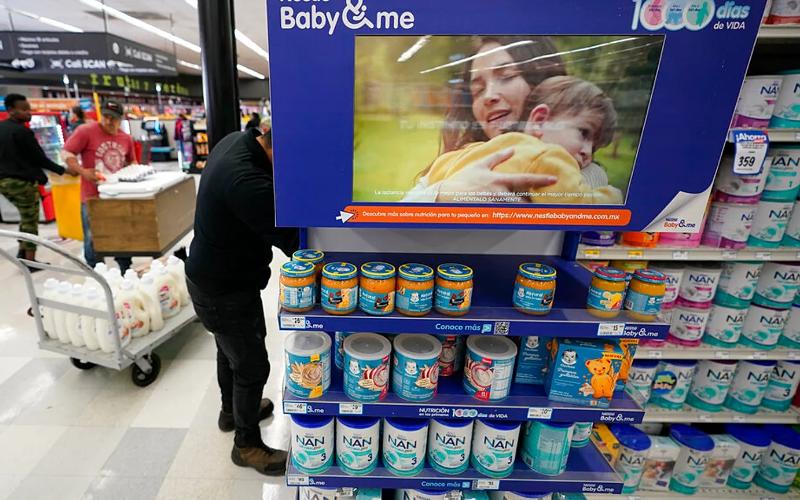Agriculture Experts Analyze Candidates’ Positions on Inflation, Farm Policy, and Biofuels Ahead of Tight Presidential Race
In a close presidential race, agriculture experts are watching closely to see which candidate may better address key issues like inflation, farm policy stability, and biofuels support. According to the October Ag Economists' Monthly Monitor, a survey of 70 U.S. agricultural economists, opinions are divided:

Inflation Control: A narrow majority of 53% believe Donald Trump would be more effective in tackling inflation, a critical factor for farmers facing rising costs in inputs and operations.
Farm Policy Stability: For policy certainty in areas such as farm support and crop insurance, 61% of the economists indicated that Trump would likely provide greater stability, which could benefit farmers seeking reliable support mechanisms.
Biofuels Support: However, when it comes to biofuels policies—a significant area for crop-based fuel production like ethanol and biodiesel—53% of economists pointed to Kamala Harris as more likely to champion biofuel-friendly policies, a crucial area for crop demand, especially for corn and soybeans.
Biofuels Tax Credit Uncertainty: A Major Challenge
Uncertainty around biofuel tax credits, specifically the 45Z Clean Fuel Production Credit, is causing concern within the biofuels industry. The delay in clear guidance on 45Z requirements is putting soybean processors, such as Cargill and Bunge, in a difficult position, with the possibility of production slowdowns or shutdowns looming. Without federal clarity, investors are hesitant to commit funds to biofuels infrastructure, potentially hampering long-term biofuels growth.
Role of the Federal Government: Financial Aid and Farm Bill
In the same October survey, 46% of economists said financial aid is the federal government’s most crucial role, with nearly 43% prioritizing the passage of a new Farm Bill. The economists voiced concerns over whether existing safety nets, like ARC (Agricultural Risk Coverage) and PLC (Price Loss Coverage) programs, are sufficient to support farmers through volatile markets. The consensus is that additional ad hoc financial support could help bridge current gaps, especially if delays in passing the next Farm Bill extend into 2025 or even 2026.
Outlook
The candidates’ differing strengths—Trump in inflation and farm policy stability and Harris in biofuels—are shaping agricultural economists' perspectives. Ultimately, with key issues like farm financial aid and biofuels support hanging in the balance, the outcome of the election could have substantial impacts on the agricultural sector’s trajectory.
Farm Policy Stability: For policy certainty in areas such as farm support and crop insurance, 61% of the economists indicated that Trump would likely provide greater stability, which could benefit farmers seeking reliable support mechanisms.
Biofuels Support: However, when it comes to biofuels policies—a significant area for crop-based fuel production like ethanol and biodiesel—53% of economists pointed to Kamala Harris as more likely to champion biofuel-friendly policies, a crucial area for crop demand, especially for corn and soybeans.
Biofuels Tax Credit Uncertainty: A Major Challenge
Uncertainty around biofuel tax credits, specifically the 45Z Clean Fuel Production Credit, is causing concern within the biofuels industry. The delay in clear guidance on 45Z requirements is putting soybean processors, such as Cargill and Bunge, in a difficult position, with the possibility of production slowdowns or shutdowns looming. Without federal clarity, investors are hesitant to commit funds to biofuels infrastructure, potentially hampering long-term biofuels growth.
Role of the Federal Government: Financial Aid and Farm Bill
In the same October survey, 46% of economists said financial aid is the federal government’s most crucial role, with nearly 43% prioritizing the passage of a new Farm Bill. The economists voiced concerns over whether existing safety nets, like ARC (Agricultural Risk Coverage) and PLC (Price Loss Coverage) programs, are sufficient to support farmers through volatile markets. The consensus is that additional ad hoc financial support could help bridge current gaps, especially if delays in passing the next Farm Bill extend into 2025 or even 2026.
Outlook
The candidates’ differing strengths—Trump in inflation and farm policy stability and Harris in biofuels—are shaping agricultural economists' perspectives. Ultimately, with key issues like farm financial aid and biofuels support hanging in the balance, the outcome of the election could have substantial impacts on the agricultural sector’s trajectory.
Key News of the Week








